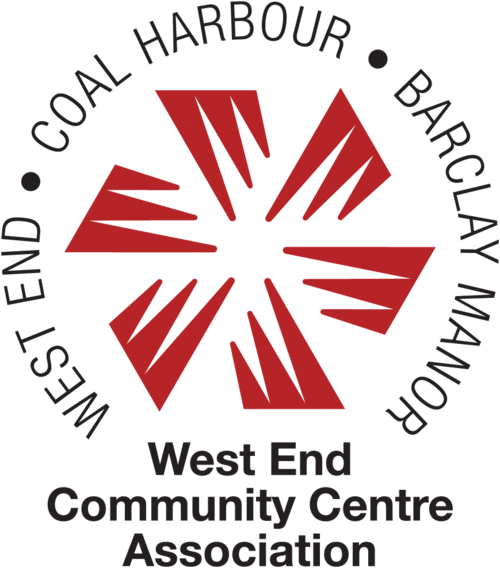A CLOSER LOOK
/“WE ARE ALL FEELING IT”
Multiple Crises Have West Enders Living in Fear
An all too common sight — police check up on a homeless man at Jim Deva Plaza.
by John Streit
Whether it's online, in coffee shops or at home, West Enders are speaking out about a perceived rise in street disorder and crime, especially during the pandemic.
Ron Wills has lived here for 30 years. He's blind and has recently started carrying bear spray for protection after being assaulted.
Ron Wills and petition supporter Ross Waddell.
PETITION LAUNCHED
Wills has launched a petition, “Reclaiming Jim Deva Plaza”, calling for government action, specifically in Jim Deva Plaza along with the rest of his neighbourhood.
"Homeless people sleeping and defecating in Jim Deva Plaza, people treating it not as a public square but as a place to litter, shoot-up and ultimately scare away the public for whom this square was intended as well as affect negatively all the businesses surrounding the square. The residents of the West End can no longer tolerate this."
Wills and other backers of the petition will be meeting with West End-Coal Harbour MLA Spencer Chandra Herbert on September 10.
Kel Goebel loves the West End but also feels overall safety has declined. She and her girlfriends have also had to buy bear spray. She feels years of community love, pride and acceptance is being lost.
"I'm so sick of being scared to be outside of my apartment like I usually am, knowing I have to pick up a convenient weapon to keep on me just in case. We are losing that so no one has to be accused of being a NIMBY. If being a NIMBY is apparently the only way to say 'I feel unsafe, please help me.'"
She's asking other concerned residents to create reports, witness accounts and write letters to City Council.
"Trust me, I understand mental health and I understand that some people need help. But tell me for sure you wouldn't call the cops on my friends and I making a tent city while wasted at the entrance to St. Paul's."
Greg Heath is from Newfoundland having moved here in 1994.
"We live in a small apartment and work our asses off. We do not have a garden but we have the beach and Stanley Park tennis courts and golf course to play with."
Heath says when he was his daughter's age, he was already running around with a pal going to the corner store unsupervised. But sadly, he feels he can't let her do that here today.
A recent moment at Jim Deva Plaza (from the “Reclaiming Jim Deva Plaza” petitiion.
"Don’t anybody tell me that I signed up for it because I did not sign up for the fact that my daughter will never ever be able to walk to school by herself. One block from my house at Comox and Denman is a nightmare."
Heath is speaking about a small plaza featuring city-installed street furniture outside a 7-Eleven store, popular with the homeless and drug addicts.
"The 7-Eleven’s wall is a public urinal. You also have human feces and open drug abuse. It all began with the city installing those sidewalk chairs and cabaret tables three years ago. I made at least five phone calls to 311 and only had one operator listen to me for more than five minutes."
Heath claims he somewhat jokingly told the city he'd hacksaw all of those tables and chairs. "I also let them know that my act would’ve made me a folk hero in my neighbourhood."
BY THE NUMBERS
Vancouver Police crime stats for the West End from March to July of this year show 16 sex offences, 168 assaults, 131 B&E's, 262 thefts along with 170 mischief calls. For all of 2019, there were 52 sex offences, 347 assaults, 309 B&E's, 1,134 thefts and 385 mischief calls.
Sex offences are the same year-over-year at 16, assaults are up 17 percent (140 in 2019), B&E's are up seven percent (122 in 2019), thefts are down 57 percent (470 in 2019) and mischief calls are the same.
Weapons offences are up 200 percent year-over-year - 24 in 2020, 8 in 2019.
The West End is in the top three in most crime categories out of 24 neighbourhoods.
DO ALL CONCERNS GET REPORTED?
Rory Richards is a board member of the West End Residents Association and moderates the private Vancouver West Enders Facebook group which has over 2,200 members. She says over the past couple of years, residents have seen an increase in crime and break-ins.
"It’s easy to appreciate the natural beauty of the West End, but what I have always appreciated is its diversity. Now, we find ourselves face-to-face with the mental health and addiction crisis challenging our nieighborhood . Five years ago, the top concern from residents would likely have been rental protection. Today I would venture to say that public safety is now vying for the top spot."
Rory says that despite residents being encouraged to report all safety or crime-related incidents directly to police, many don’t bother because they don’t believe anything can or will be done about it.
Tents are appearing around the West End, such as this one on Bute near Nelson Park.
"Our police and paramedics are already stretched to capacity. A sense of casual hopelessness and/or outrage have become common sentiments."
West Enders are generally known to deal with noise and disorder no other neighbourhood would tolerate. So, what is different this time?
"What’s different now is that residents legitimately do not feel safe. Seniors think twice about going out alone. Some of them have been robbed in broad daylight. There have been numerous attacks on women walking alone at night. Parents are concerned with open drug use and paraphernalia in West End parks and schoolyards. Every demographic in the neighborhood has been affected by the shift. We are all feeling it."
She says the West End is not a NIMBY neighborhood.
"You won’t find the pearl-clutching in the West End that you might in other neighborhoods. But even the toughest and most compassionate West Enders can't ignore the elephant in the room."
Richards feels the street level mayhem that is often associated with the Downtown Eastside is becoming more prevalent in the neighbourhood.
"Residents are witnessing individuals struggling with mental health disorders that are having full-blown, psychotic and sometimes violent episodes in public spaces and it is beyond anything the average resident knows how to deal with."
She says that includes a man standing naked from the waist down masturbating in front of the West End Community Centre while threatening to kill everyone, and another covered in blood and wielding metal chairs.
"I think it is important to acknowledge that, in addition to COVID, we are in the midst of multiple crises; opioid, mental health and homelessness. The issues that are causing West Enders to feel unsafe are symptoms of a larger battle that we are fighting, not just as neighbourhood, but as a society."
MANY TURNED AWAY FROM SHELTERS
Since the pandemic, the Union Gospel Mission (UGM) in the Downtown Eastside has been seeing a notable increase in the number of people it's had to turn away. In its shelter, monthly turnaway numbers have increased three-fold this summer over the same period last year with typically 3-4 turnaways every night.
Nicole Mucci with the UGM says her outreach workers walk alongside many people experiencing homelessness in the West End.
"It's important to know that these are people first and someone who is experiencing homelessness or addiction isn’t defined by this moment in their life nor these specific experiences alone. They aren’t homeless by choice, but often fall into homelessness as a series of crises collide around them - things like a health crisis, financial crisis, housing crisis, extreme grief or mental anguish.
“A person experiencing homelessness has also likely experienced deep trauma in their life. These things can take months or years to work through, but they can be done."
REAL SOLUTIONS NEEDED
Many of the homeless in the West End, especially those dealing with addictions appear hard to house.
"Just because someone appears “hard to house” doesn’t mean that they are actually hard to house - it probably means that they may need additional supports that a person who doesn’t struggle with addiction, mental health or trauma may not need. The traditional concept of housing may not be the right way to house a person who has lived on the streets for years.
“Maybe we should be asking what types of housing will provide a safe, healing space for the neighbors in our lives that are currently without a roof over their heads. This usually means a dignified space with wraparound supports like counselling and case managers." Mucci says.
Some in the West End are pointing to new low-barrier temporary housing like the provincially-owned Howard Johnson Hotel on Granville Street as another reason for an uptick in public disorder.
But Mucci claims evidence repeatedly shows that housing people who don’t have homes actually over time reduces, rather than increases, the problems we fear like violence, open drug use and lack of sanitation.
"In a study done of supportive housing in B.C. in 2018, 80% of those units saw a decline in police calls after 6 months of being opened and 450 people living there saw a 61% decrease in their interactions with the criminal justice system. A case study of 18 of those supportive housing units showed that the property value of almost all of them was the same as or even surpassed municipal trends!"
She empathizes with West Enders concerned they’re seeing more issues like open drug use and mental health struggles. "These are uncomfortable and painful things. The answer to reducing them is more supports in our communities, not less."
Rory Richards says her hope is that the West End can come together around the tough issues it's facing and not be divided them.
"We have done it before and we are a stronger community because of it. I believe we can do it again."




